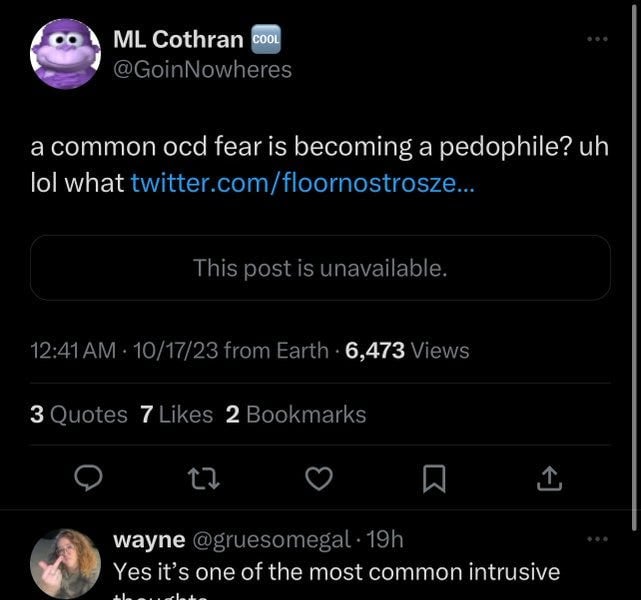Could you please provide me with a script about how this might clinically go down?
Not being snarky or anything - I just find a script for this stuff helpful.
I almost typed out a script and then ran out of a steam. Now I have a reason!
Client: Hey, I have been doing some reading, and I meet a lot of the criteria for ASD. I'm wondering if I can get tested?
Me: Okay, what's kinds of things are you noticing? There are different types of testing, and I want to get you to the right place.
Client: *lists hard, but non-ASD-specific symptoms*
Me: Yeah, I can see why you would want to get to the bottom of things. That sounds hard to deal with.
(then I ask more screening questions depending on how long I've worked with them to get at depression, loneliness, thwarted belongingness, etc.)
Me: So, based on your symptoms, it sounds like it can be a lot of things. Testing can be a pretty long process. Is there something specific you're hoping to gain? I might be able to connect you to the resource without a diagnosis in the meantime.
(This is easier because I work with Veterans who have access to all kinds of things.)
This is usually the meat of the session. I haven't gotten any specific resource requests yet. I'll ask about whether they need accommodations at work or school. Most of the time, they have a hard time relating to friends and family. This is where I introduce other options and share the pretty boring secret that even if they get a diagnosis, things probably won't look much different in the way of psychotherapy and meds.
Client: So nothing changes?
Me: Not really! We all show up in this world differently and excel in some time things and struggling with others. (I sometimes do a little self-disclosure about my anxiety and how the symptoms are beneficial sometimes and a hinderance other times). I always tailor the therapy to fit the person I'm talking to for that reason. Is there something you're wanting to change about therapy/recommendations I can make to the therapist? I am always happy to hear feedback.
Client: Not really. I just don't want to miss anything.
Me: I will say ASD is really tricky to diagnosis in adults because the symptoms are similar to a lot of diagnoses and sometimes look like just showing up as a different kind of human than the people around you. Will a label of ASD change anything with your relationships with friends and family?
(More meat!)
So far, in my short time as a clinician, the person has decided against wanting an assessment. With my folks wanting an ADHD assessment, this is where I suggest psychotherapy to work on their specific symptoms and recommend we revisit it after a few weeks of therapy. Then I can get some good observational data to make a more informed decision if they're still interested. I have had a couple of folks I have referred for ASD assessment just to better conceptualize their presentation and how it was impacting treatment.
I feel like this approach gives me a lot of flexibility to monitor symptoms and build a therapeutic relationship. I want to be warm and supportive, and I want to appropriately manage resources. I don't formally assess every veteran who thinks they might have PTSD either. Unfortunately, this hasn't been an issue for most of them because they'll just get the diagnosis with a PCL-5. That's a different script though.

